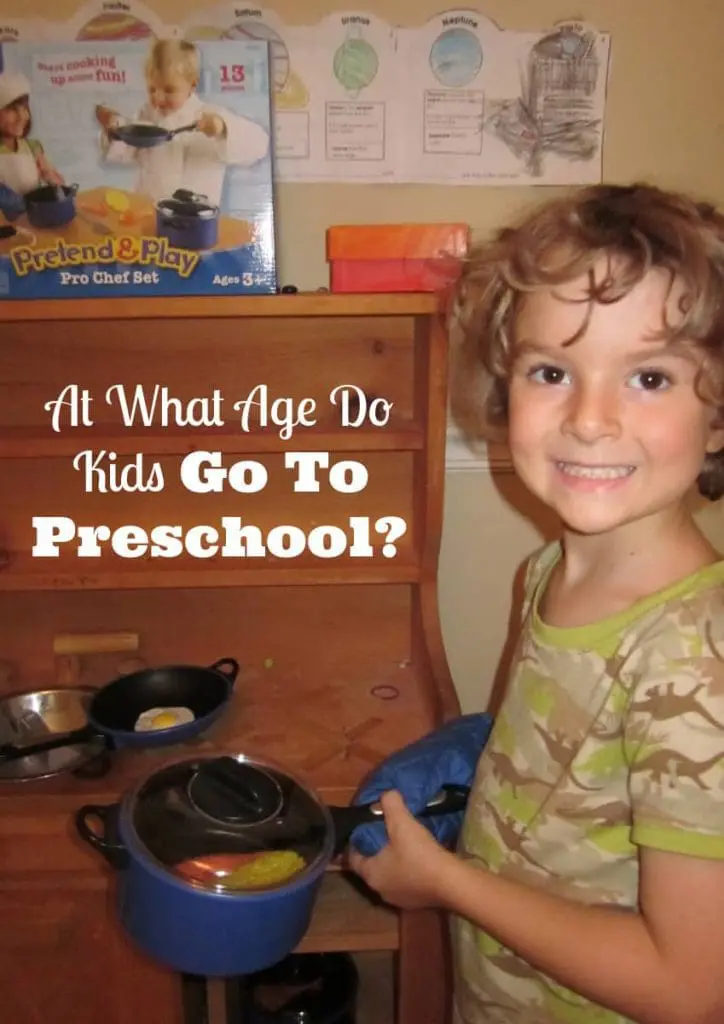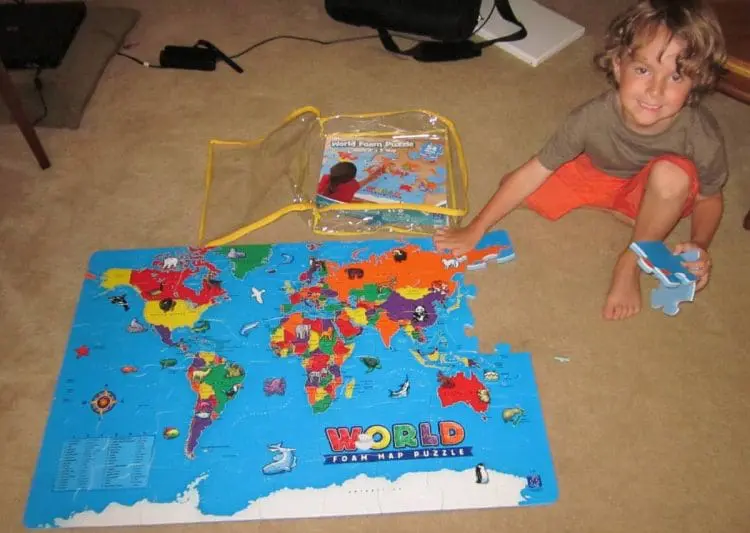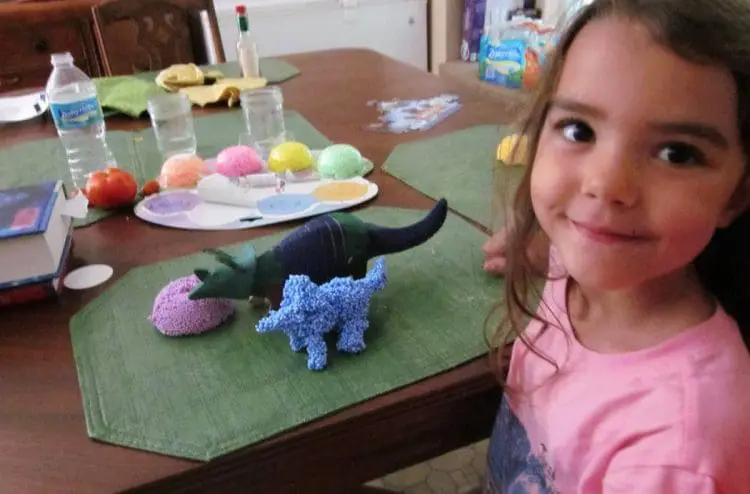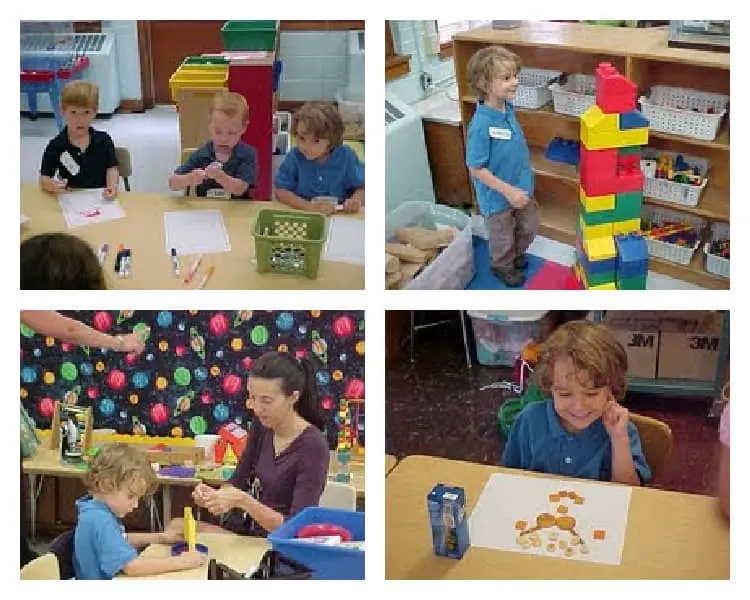Are you wondering at what age kids go to preschool? Being a parent comes with many difficult decisions about doing what’s best for your child. And early childhood comes with a number of milestones in your child’s development. Those two things come together in the decision of when is the right time to send your child to preschool. Below I will provide information about the typical age that most children start preschool as well as factors to consider when determining your child’s readiness.

What Age Do Kids Start Preschool?
Many parents wonder, “At what age do children start preschool?” While many children start preschool around the age of 3, it’s not always the best choice for every child. The decision to start your child in preschool isn’t just about age, it’s about readiness. All kids develop at their own pace and it’s best not to rush them.
In addition, different school districts offer free public school for early childhood education to everyone. Meanwhile, others only have Head Start Programs for low-income families. In some cases, the only preschool provider may be a private school.
The CDC considers preschoolers to be between 3-5 years old. Furthermore, the CDC suggests that “They will want to explore and ask about the things around.” They also suggest that parents, “Keep television sets out of your child’s bedroom. Set limits for screen time for your child to no more than 1 hour per day of quality programming, at home, school, or afterschool care.” One of the preschool developmental milestones is being able to play with other children.
A preschool program (sometimes called a pre-k program) for young children should provide your child with age-appropriate play equipment. It should teach basic skills like naming colors through song, dance, and play. It should allow for social interaction with other children the same years of age. A high-quality preschool should have well-trained teachers to help with the child’s needs, emotional skills, and cognitive development.

Is My Child The Right Age For Preschool And Are They Ready?
There are some key indicators that can let you know that your child is ready to start engaging in a more social environment and go to preschool. Here are some guidelines to help you decide when is the right time for your child to start preschool. Consider these preschool readiness factors.
Preschool Age
Most children attend preschool for two years leading up to kindergarten. This can vary based on when your child’s birthday is. A birthday after September 1st means your child will most likely start kindergarten late. For this reason, preschool is sometimes postponed for an extra year. Or your child may attend preschool for 3 years instead of 2. Many preschools also have an age minimum for when they will accept kids.
Potty Trained
Many preschools will require your child to be potty trained before accepting them. Preschoolers should also be able to do some tasks themselves. For example, putting on their own coat and shoes, washing their hands, and fastening their own pants. Here are some tips on toilet training for toddlers.
Following Instructions
While there usually aren’t many strict rules in preschool, your child will be expected to follow simple instructions. For instance, they will need to help clean up after crafts and follow in a line with the rest of the class. Also, they must follow some basic rules at playtime.

Speech
No one expects a 3-year-old to have perfect speech, but they will need to be understood by their teacher and other students. They should be able to speak so that they can be understood and hear what other people are saying to them.
Handle Transitions
Preschools function on an established schedule and kids will be asked to transition from one activity or task to another throughout the day. Playtime will lead into snack time, which will lead into craft time. Your child will be expected to make these transitions smoothly.
Separation
If this is your child’s first time separating from you, they may have trouble at first with separation anxiety. It’s perfectly normal if you haven’t left your child before or they get upset when you do. However, they’ll need to be okay with leaving you to go to preschool. A few half days at daycare a week or having a babysitter come over a couple of times a week will help your child adjust before preschool.
Interact with Other Children
Your child will need to interact with other kids throughout the day at preschool. So if they’re not used to being around other children regularly, it may be time to schedule some playdates.
Conclusion
Don’t feel pressured because your child has reached the typical preschool age of 3. Just think about what is right for your child and your family because every child and every household has different needs.
I didn’t send my daughter to preschool until she was 4 and then only 3 days a week for 3 hours. At what age do kids go to preschool was not a concern for me. As a stay at home mom, I wanted her to be able to stay with me most of the time. I chose the preschool classes because they were part of a great educational program. My daughter was ready for more structure and opportunity to increase her social skills. In addition, I wanted to make sure she had some exposure to the preschool environment so she would be prepared when she started her kindergarten program.

My son went to preschool when he was 3 because he was looking forward to keeping up with his sister. We already knew and loved the Robertson Academy Preschool for gifted and talented students that his sister was going to. Thus, it was a natural choice.
Research your options and don’t feel rushed. If your child isn’t ready for preschool, that’s fine. You can let them progress at their own rate and encourage some behaviors with positive reinforcement until they’re ready. If you’re still unsure if your child is ready, talk to your pediatrician and to the preschool. They’ll help you determine your child’s readiness.
Related Posts:

Diane says
This was such a helpful read! I’ve often wondered about the right age to start preschool, and I appreciate how you broke down the benefits of starting early versus waiting a bit. Every child develops at their own pace, and it’s reassuring to know there isn’t a one-size-fits-all answer. Thank you for sharing such practical insights for parents making this important decision.
Stanford says
Great post! I love how you explained the different ages and stages—it really helps me as a parent feel more confident about when my child should start preschool.
Brian Garden says
This was such a helpful read! Ive often wondered about the right age to start preschool, and I appreciate how you broke down the benefits. The tips on readiness factors were especially useful, and its reassuring to know that every child is different. The emphasis on not feeling pressured was a great reminder for me.
Pearl Marry says
This is such a helpful guide for parents navigating this important milestone. The distinction between preschool and pre-K is especially useful, as many use the terms interchangeably. Your emphasis on social-emotional readiness over strict age is so important. It’s a gentle reminder that every child develops at their own pace. This will ease so much anxiety for families making this decision!